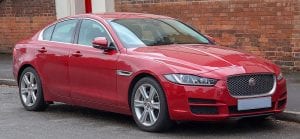Electric Vehicles Out-Sell Diesel for First Time (UK)

Electric Vehicles Out-Sell Diesel for First Time (UK)
Electric vehicles (EVs) out-sold diesel cars in the UK for the first time in September 2020, according to data from the Society of Motor Manufacturers and Traders (SMMT). This marks a significant landmark for the country's transition to zero-emission vehicles, as well as the decline of diesel-powered cars in the market.In the past year, the electric vehicle (EV) market experienced impressive growth of 40.1%, while sales of diesel cars plummeted by 38.9%. In addition to this significant shift, it is noteworthy that the average new car's carbon dioxide (CO2) emissions have reached their lowest point at 11.4 grams per kilometre. This data reinforces the positive impact of EVs on reducing greenhouse gas emissions and marks a milestone in the automotive industry's efforts to combat climate change.This milestone is a notable achievement considering that diesel cars were once seen as the most fuel-efficient and lowest carbon-emitting option in the market. However, concerns over air pollution and emissions-related scandals have tarnished the reputation of diesel cars, prompting policy changes like low-emission zones and road pricing schemes that make owning a diesel car less attractive.Meanwhile, electric vehicles have risen as a viable alternative, with their zero tailpipe emissions and lower running costs creating an appealing proposition for consumers. The rise of government incentives like grants, exemption from certain taxes, and charging infrastructure have also boosted the adoption of electric cars.The government's goal is to have 300,000 public chargers in operation by 2030. However, only 34,637 chargers have been installed as of October. To meet this target, 100 new chargers need to be installed daily, which is currently happening at a rate of around 23 per day. This falls short compared to what may be necessary, as the EV Infrastructure Strategy suggests that the UK may require up to 720,000 charge points.The Role of Automakers and the Shift to ElectricAs the demand for electric vehicles grows, automakers have also been adapting to this changing landscape, with many of the world's leading car brands pivoting towards electric models. In the UK, carmakers like Nissan and Jaguar have rolled out electric models like the Leaf and I-Pace, while new entrants like Tesla, Polestar, and Rivian have also made a strong market debut.The popularity of electric vehicles is not just driven by consumer demand for more sustainable motoring but also by the auto industry's own sustainability goals. Many car manufacturers have committed to electrifying their vehicle fleets, with some aiming for full electrification by 2030 or earlier. This move can be seen as a response to the global climate crisis, as well as the potential business opportunities presented by the EV market.However, challenges remain for the EV sector, particularly in the areas of infrastructure and affordability. While the UK has been making strides in expanding its charging network, there are still "charging deserts" in some regions that need to be addressed. Furthermore, the higher upfront cost of electric cars compared to petrol or diesel cars is still a barrier for some consumers, even with government grants. Charging times and range anxiety are frequently cited as concerns. The good news is that many solutions are in the pipeline, including half an hour's fast charging times, battery improvements, and more extended driving ranges, which will go a long way in addressing these concerns. The Decline of Diesel Sales
 2017 Jaguar XE Portfolio Diesel Automatic 2.0; image courtesy of Vauxford via Wikimedia Commons, https://commons.wikimedia.org/
2017 Jaguar XE Portfolio Diesel Automatic 2.0; image courtesy of Vauxford via Wikimedia Commons, https://commons.wikimedia.org/

